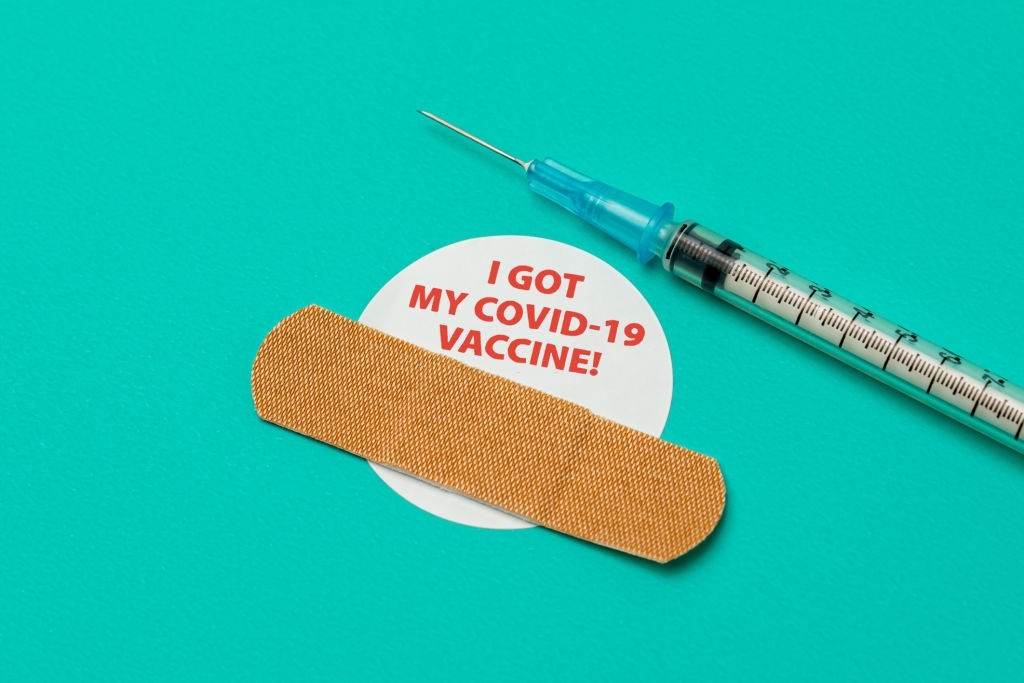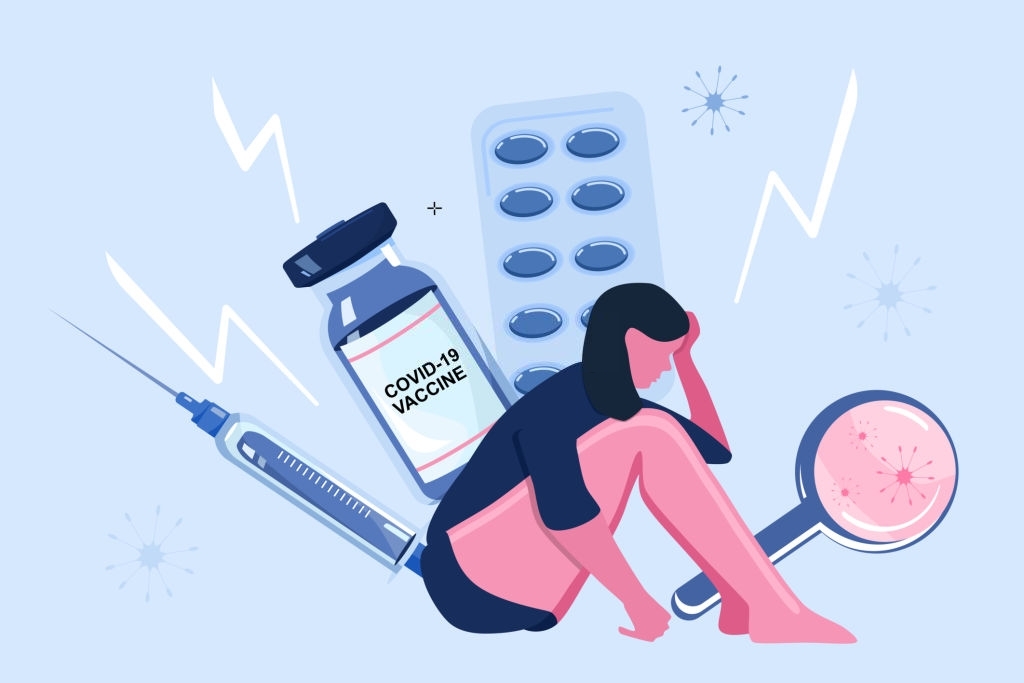We would not be mistaken if we say that the year 2020 will be recognized as the “Coronavirus Year” in history and we as a generation watched this story unfurl from the city of china, Wuhan, to each road of each city in each nation of this world.
This pandemic has had a destructive effect on the whole world for over one year. This pandemic does not appear to end with more than 92 million cases and two million deaths.
In several continents and nations that succeeded in controlling initial outbreaks, are witnessing the rise in Covid-19 cases again.
The WHO has cautioned that the virus is expected to begin to spread exponentially in the coming months.
During the autumn, many European countries saw a spike in cases, and many countries enforced lockdowns and took other measurements to prevent the Covid-19 infections.
The United Kingdom is also seeing an increase in cases caused by a new, more quickly transmitted, mutated form of the virus.
Numerous Covid-19 vaccines have now been licensed for use by individual nations, the European Union, and the World Health Organization.
As of December 28, 2020, three COVID-19 vaccines are undergoing large-scale Phase 3 clinical trials in the United States::
- AstraZeneca’s COVID-19 vaccine
- Johnsen’s COVID-19 vaccine
- Novavax’s COVID-19 vaccine
Some other Vaccines are
- Pfizer/BioNTech vaccine
- Moderna vaccine
Are these Covid-19 vaccines safe to use?
The overall efficacy of Covid-19 Vaccines has been recorded to be between 70% and 95%. That is significantly higher than the average efficacy of flu vaccines, for example.
Pfizer/BioNTech vaccine: This vaccine was shown to be 95 percent successful in a Pfizer/BioNTech vaccine trial involving almost 44,000 volunteers. In the United States, this vaccine is approved for use.
Moderna vaccine: A 94% efficacy rate was recorded in a Moderna vaccine trial involving over 30,000 volunteers. In the United States, this vaccine is approved for use.
AstraZeneca/Oxford vaccine: In an AstraZeneca/Oxford vaccine trial, full doses had an overall efficacy of70%, but lower doses had much better outcomes (as high as 90%). This vaccine is approved for use in the United Kingdom, but not in the United States.
Johnsen’s COVID-19 vaccine: The overall success of a Johnson & Johnson (Janssen) trial in preventing mild to severe COVID-19 was 66 percent (72 percent in the US). In the United States, this vaccine is approved for use.
These vaccines not only tend to reduce the risk of developing COVID-19, but they also appear to reduce the risk of serious disease.
How does Covid-19 Vaccine Works?
When we are exposed to an infection, our immune system remembers the threat by developing antibodies, which are proteins that accumulate in the blood and the body.
They quickly identify and suppress the invader upon interaction, avoiding or mitigating infection, which is why we rarely get sick with the same bug twice.
Covid-19 vaccines are delivered with a needle, like most vaccines, like the flu shot.
The body’s immune reaction–the normal way to protect itself–is therefore triggered.
By enabling it to identify and resist the virusCOVID-19, the vaccine will improve your immune system.
The vaccines may include either killed or weakened disease-causing versions of the virus or a small proportion of the virus, such as a protein.
There is no chance of a vaccine causing you to get a disease.
When the immune system recognizes this virus or part of it as foreign in the vaccine, it reacts by generating memory cells and antibodies to shield you from potential infections or diseases.
Consequently, following the vaccine, you would be less prone to serious COVID-19 effects.
Covid-19 Vaccines assist our body in creating antibodies against the Covid-19 virus, without getting into illness
Various vaccinations protect many respects, but all vaccines provide the body with a supply of “memory” T-lymphocytes, B-lymphocytes, and antibodies that know how to resist the virus in the future.
After vaccination, T-lymphocytes and B-lymphocytes are usually produced for a few weeks for the body.
Following vaccination, the immunity-building process can often result in symptoms like fever, muscle pain, weakness, etc.
These symptoms are normal and are a sign that the body is building immunity.
So, you must understand the minor side effects of the Covid vaccine, and also we will discuss some of the rare but serious complications that can occur.
Also, we will talk about whether you can get covid-19 from a covid vaccine?
So, without further ado let’s begin.
Common Side Effects of COVID-19 Vaccines
Like every vaccine, the COVID-19 vaccine can produce several mild to moderate side effects which can go away on their own after a few days.
More severe or long-term effects are likely, as seen in the outcomes of clinical trials.
To detect adverse reactions, vaccines are regularly monitored.
By the way, a side effect or reaction is not always all bad; it shows that the body is creating resistance against the virus.
The most common side effects that you can experience after the COVID-19 Vaccine include:
- Injection site pain
- Tiredness
- Headache
- Muscle pain
- Chills, swollen lymph nodes
- Joint pain
- Fever
- Injection site swelling
- Injection site redness AND nausea
These are known as minor or expected side effects of a vaccine and they can occur not just after the Covid vaccine but in fact after most of the vaccines that you receive.
Since your body is responding to the vaccine, you will experience these side effects.
The chances of experiencing either of these side effects after vaccination vary depending on the vaccine.
Less common side effects
Although serious side effects are probable, they are extremely uncommon.
Take, for instance, yellow fever, which is also caused by a virus.
For people who haven’t been exposed to the virus, severe side effects appear at a rate of 0.09 to 0.4 cases per 10,000 doses of the yellow fever vaccine, according to the WHO.
Yellow fever, on the other hand, is almost always lethal in its severe form.
Similarly, severe allergic reactions to vaccines occur at a rate of 1-2 cases per million.
Compare it to the measles mortality rate (around 1 in 500) and fever, which alone deaths about 200 in the United Kingdom, each winter, and it is evident which one is dangerous.
The risks and benefits are what we need to understand how many people die of yellow fever; how many people died from measles vs. how many died from any severe adverse vaccine effect.
Adverse consequences for the person and the family are devastating but are very rare, and we need to equate this with the dangers involved with the disease.
A serious allergic reaction can be caused by vaccines.
A serious allergic reaction will usually appear within a few minutes to one hour of getting the COVID-19 Vaccine.
For this reason, a person should be asked to stay at the site for 15-30 minutes after getting a dose of the vaccine, so that the health workers would be the available in event of immediate reactions.
If an individual has unexpected adverse symptoms or health events such as side effects that persist well over three days after vaccination then he should inform their local healthcare professionals.
For some COVID-19 vaccines, Less common side effects are as follow
- Difficulty in breathing
- Face and throat swelling
- A fast heartbeat
- Rashes all over your skin of the body
- Weakness and dizziness
- Anaphylaxis (Extremely Rare)
National and international organizations, including the World Health Organization, are keeping a close eye on any unexpected adverse effects after usage of the COVID-19 vaccine.
Why it’s normal to have mild side effects from vaccines
Vaccines are intended to provide you with immunity without the risk of disease.
Vaccinated patients usually suffer mild to moderate side effects.
This happens because the immune system directs your body to respond in specific ways, such as increasing blood flow to allow more immune cells to circulate and raising your body temperature to destroy the virus.
Mild-to-moderate side effects, such as a moderate fever or muscle aches, are normal and not a reason for worry.
They indicate that the body’s immune system is responsive to the vaccine, particularly the antigen (a substance that causes an immune response), and is preparing to fight the virus.
Within a few days, these side effects normally go down on their own.
Side effects, common and mild or moderate, are positive things since they show us that the vaccine is effective.
The absence of side effects does not imply that the vaccine is ineffective. It implies that everybody reacts differently.
Final Verdicts
COVID-19 is an unpredictable and possibly fatal disease, according to what we’ve seen so far. And the statistics about the safety and effectiveness of COVID-19 vaccinations are promising.
Minor side effects are common; serious allergic reactions are rare.
Most people should not avoid vaccines because of common side effects.
Vigilance is needed as the number of vaccine patients and the number of different vaccines increases.
Volunteers who have been vaccinated in research trials and the public who are vaccinated are being monitored and advised to disclose issues they face.
Any modern medical treatment has advantages and disadvantages.
Although keep in mind that the disadvantages of avoiding treatment are also present.
The decision to vaccinate against COVID-19 should be a simple one based on readings and currently available facts.




